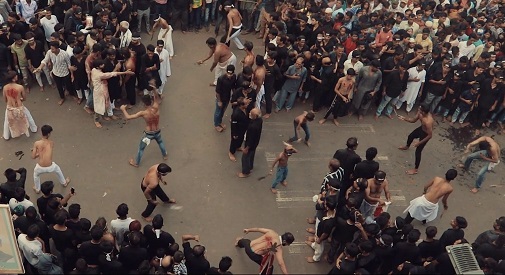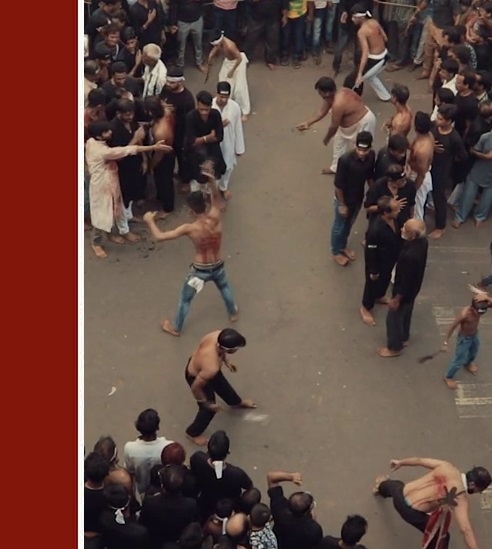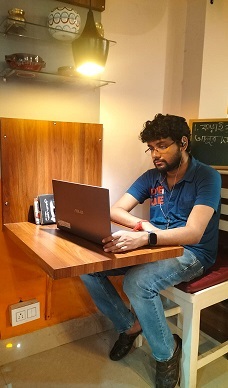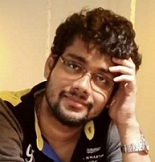
Dheu


Sound guides the viewer through the slippery poetic documentary of director Himanshu Tomar. The opening sequence of the waves of the Ganga shifts to the serenity of the noises of nature within forested regions, before the cacophony being teased at the beginning suddenly narrows down—a baby’s heartbeat becomes the key.
From there, Dheu focuses, pushing the viewer through the microcosm that is being examined and showcased—the cacophony of the ghats of Bengal, which in turn is representative of the diversity in Bengal as well as the country itself—the visible as well as the invisible and the ignored. We are witnesses to idolatry as well as communal bathing. We are given a fraction of a viewpoint, but an important one, on the lives of the pehelwans, their training, as well as the minuscule moments of relaxation where they would play with their children while simultaneously training them. We witness the chaos of the bazaar through the wide-eyed view of the flower sellers, while also being given a moment of silence with the noise sucked out when the kids are playing football and a group of documentarians attempt to capture the smooth physicality. Serenity and chaos co-exist in the same timeframe of a single day, even within the same hour, if one deigns to look.
But what is truly revealing for Dheu and striking are moments of unflinching truth—drug use within the shadowy corners of religious houses, food being scrimmaged from leftover plastics and garbage bags, all existing simultaneously within the grind of people moving back and forth in the ferry from Howrah to Kolkata, or in the luxurious yachts of the upper-class people which remain empty. The ghats also emphasize a world where space is afforded for all religious celebrations, the ideal of a country where religions can coexist, even with all the tribulations that secularism faces. The word itself has been moulded beyond recognition, but as one takes an objective view, one realizes that at the end of the day, humanity exists in socially constructed norms of class and economic divide that are as easy to identify and simultaneously ignore.

Dheu pushes the viewer through the microcosm that is being examined and showcased, the cacophony of the ghats of Bengal, which in turn is representative of the diversity in Bengal as well as the country itself.
It’s in the style of filmmaking—the impressionistic attempt at joining images together through the rising and falling cadence of the soundscape—where the film ultimately excels. The documentary could rightly be criticized as perhaps being too observational, or too interested in showing all the different facets rather than completely encapsulating all those images and the lives depicted through the imagery, but what Tomar, DoP Himalay Debnath, Editor Nimesh Chowdhury and especially sound designer and Location scout Eemon Roy are seeking is thematic and aural encapsulation – cacophony becoming singular noise which can be parsed through if one chooses to hear and listen. The singular, unique sound of the ghats is the singular cacophony, a mixture of unrest and silence, and the images too complement that sound. Perhaps the slight nature of the thematic exploration works well in the encapsulation of the number of subjects that are being touched upon within a 23-minute runtime.
Waves remarkably opens with the visual of a baby sleeping, its heartbeat luring us in. The film starts to leave us with a body burning at the pyre, only its feet visible. The baby and the burning body are the two bookends of the human condition – birth and death – events that every human being irrespective of caste, creed or religion would have to undergo, and the ghats are shown as the overall microcosm of the central tenets of the human condition co-existing is a fascinating idea, albeit flawed. Because the body being burnt inadvertently brings up the religion as well as the caste of the individual, and thus even in death, humanity is divided. Maybe that is me looking too much, or maybe that is the point – to identify the invisible lines of the divide that are quite apparent if one deigns to look up from one’s own solipsism.
Waves was the winner of the Best Documentary Film award at the inaugural edition of the Mumbai International Student Film Festival (MISFF 2023).
Amartya Acharya
PhD scholar who reviews films for High on Films, Digital Mafia Talkies, Film Fugitives, Upper Stall, and the Journal of Indian Cinema.
Member of the Film Critics Circle of India. Has served on the jury of the Indian Film Festival of Cincinnati, the Kautik International Film Festival, and the Mumbai International Student Film Festival.

Share Widely

